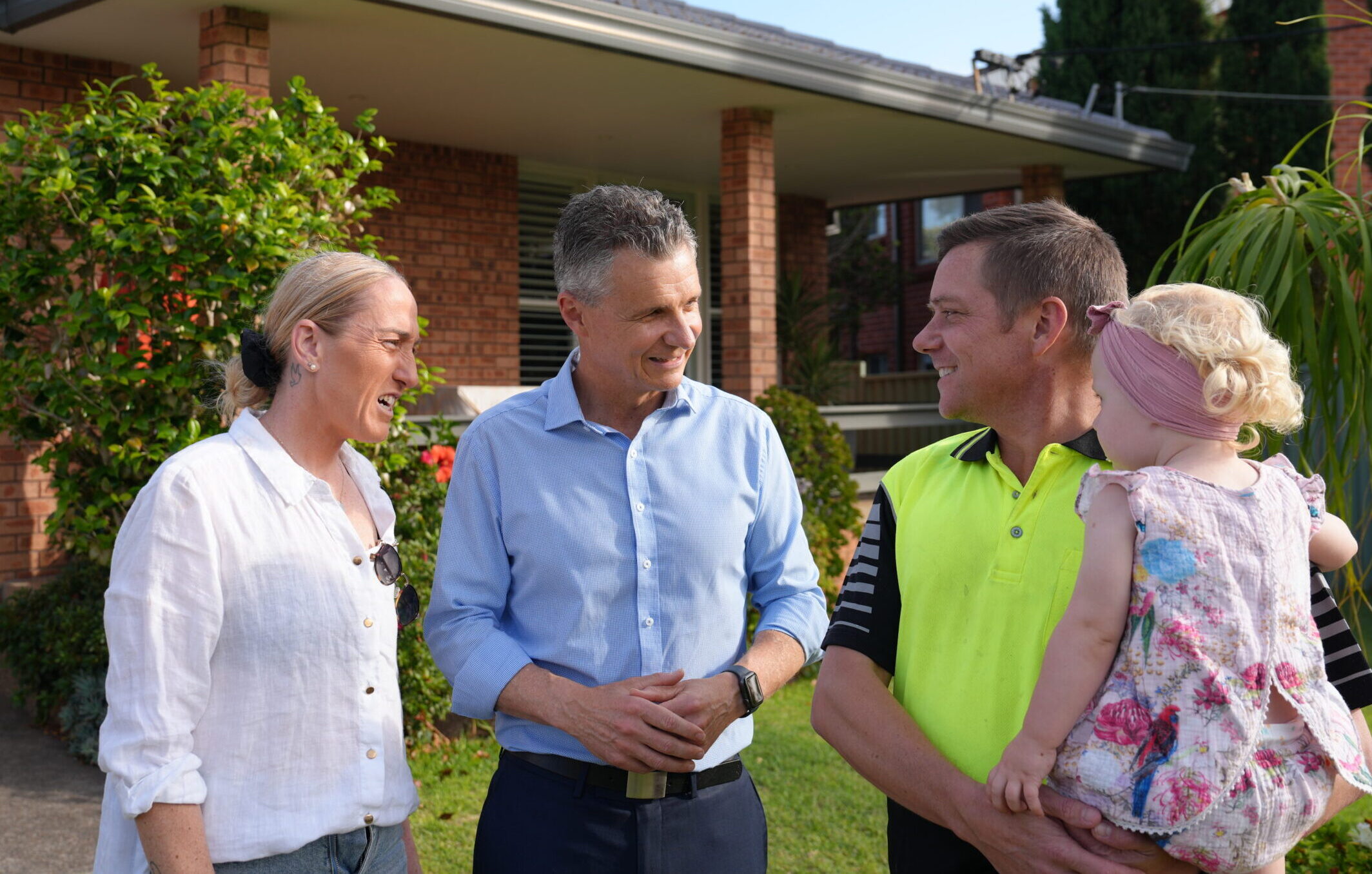SUBJECTS: Wieambilla tragedy; Energy prices; Energy Price Relief Plan.
PETER STEFANOVIC, HOST: Well, back to one of our other top stories this morning, that’s one of the gas giants has threatened to withdraw supply from the east coast as the fight over price caps escalates. Let’s bring in the Assistant Defence Minister, Matt Thistlethwaite, this was a bit of a tricky jump coming from that horrific story in Queensland there, Matt, but I do want to ask you about this news overnight that Shell has suspended supply. Other companies are thinking about it. Have you spooked the market with too much intervention here?
MATT THISTLETHWAITE, ASSISTANT MINISTER FOR DEFENCE: Thanks for having me on, Pete. I just want to reiterate the words of Ian Leavers. What a terrible, shocking tragedy. Those two young police officers in their 20s with their lives ahead of them. It’s such terrible, terrible news and the innocent bystander. So, our thoughts are with the police family today and I think Ian Leaver’s words were right, if you see police officers then go up and thank them. On the gas supply issue, look, we’re confident that the measures that we’re putting in place, which are temporary measures to ensure that there’s relief for households and businesses over the next twelve months, will ensure that suppliers continue to supply to the market. And there’s a supply incentive in part of the deal that will ensure that their costs are reduced a bit so that they can continue to supply into the market. But we are facing a unique set of circumstances because of the war in Ukraine and the slow transition to renewables. Families and small businesses would have been facing exorbitant increases in energy costs and we’ve had to act.
STEFANOVIC: There will be a revenue hit though. You do mention that companies will be held, but it will be a sizable revenue hit. So, if Shell pulls out, and as we just mentioned there, others are thinking about it, if they end up doing that as well, what’s your next course of action?
ASSISTANT MINISTER: Well, many of these companies have been making super profits in other jurisdictions, they’ve faced taxes, particularly in the UK. Australia is not going down that route. We’re looking to cap the price but still make sure that they can make a reasonable return on their investment. So, the mandatory code of conduct that’s being negotiated will have a requirement to price gas at a reasonable price to reflect the cost of production and the ACCC will be involved in policing that. We think that that’s a reasonable process that avoids a tax but ensures that we can provide relief for households and small businesses.
STEFANOVIC: But what’s to stop companies from just keeping gas in the ground?
ASSISTANT MINISTER: Well, we believe that the supply incentive and the price that they’ll receive in the market will ensure that they can still supply and that they still will make a reasonable profit out of it. We want to make sure that the profits are reasonable, not super profits…
STEFANOVIC: [interjecting] What’s reasonable though?
ASSISTANT MINISTER: Well, that will be set in consultation with the ACCC to reflect the cost of production. And we’re basically taking the price back to the pre-war in Ukraine days, back to those levels. So, if it was profitable to produce pre the war in Ukraine, it’ll be profitable to produce under this regime as well. But importantly, we’ll be able to compensate households and small businesses for the cost increases so that they can get through this difficult period.
STEFANOVIC: But when you fix the price, the free-market system dives, or the whole idea of it, which can affect business confidence. So how exactly does this encourage investment?
ASSISTANT MINISTER: Well, in two ways. Firstly, the industry has been on notice that this was coming for some months now. There’s been negotiations going on basically since we came to government about ensuring a reasonable price. And the gas producers said, yeah, well, we’ll reduce prices, they’ll come down and they haven’t. So, they’ve had ample warning. And the government’s been forced to act because we know these price increases, which are in the vicinity of 35% for electricity costs, are coming next quarter. So, we have to act, we have to do something. And we’ve chosen to go down this route because we believe it’s the most efficient and effective way to continue to ensure that they produce gas for the domestic market. But some of the heat is taken out of the price for small businesses and households.
STEFANOVIC: Can you get the Greens on board?
ASSISTANT MINISTER: We believe that they’ll support these measures, hopefully, and that negotiations with other crossbenchers are looking fruitful. We didn’t want to really have to intervene, but the circumstances really dictate that we have to, and we have to do it now because these prices come online in the first quarter next year and households and businesses facing those costs as well as other inflationary pressures would be too much early next year. So, we’ve acted to support Australian families and small businesses to get through this difficult period. It needs to be pointed out only a temporary measure that will get us through this difficult period. Hopefully, we’ll come out the end of it in a better state.
STEFANOVIC: Okay, Matt Thistlethwaite, appreciate your time as always. We’ll talk to you again soon.


